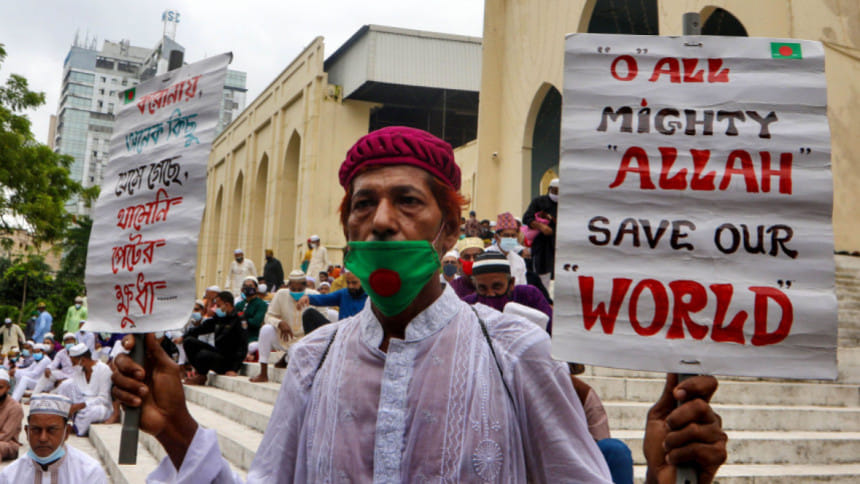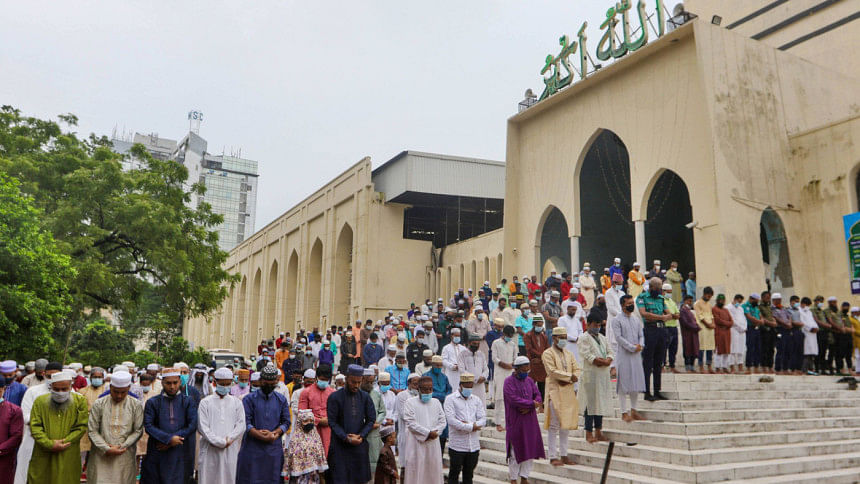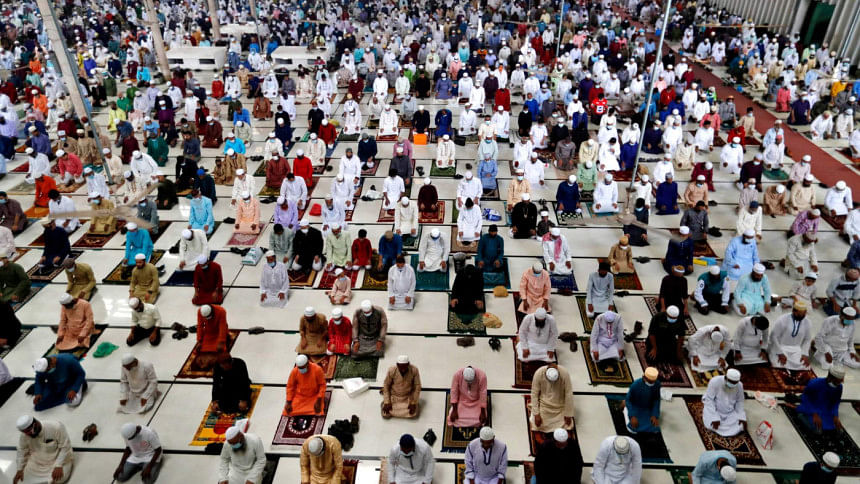Bangladesh celebrating Eid-ul-Azha as Delta variant wreaks havoc

Eid-ul-Azha, the second largest religious festival of Muslims, is being celebrated today as the Delta variant of Covid-19 is wreaking havoc across the country.
Bangladesh is now battling the second wave of Covid-19 with over 200 deaths on average per day over the last two weeks.
Concerns are growing over further possible spike in Covid-19 deaths and cases after the celebrations of Eid-ul-Azha as movement of people increased remarkably following withdrawal of the strict lockdown for eight days. A large number of people left Dhaka in crowded vehicles, ignoring transmission risk.
Eid-ul-Azha is celebrated on the 10th of Zilhaj to commemorate the true spirit of sacrifice made by Prophet Ibrahim (AS). On this day, Prophet Ibrahim had offered to sacrifice his son, Ismail, who willingly submitted to the will of his father to please Allah.

But the Almighty in His infinite mercy spared Hazrat Ismail (AS) and sent a ram to be sacrificed.
Meanwhile, the government has taken various safety measures to make sure that the celebrations do not worsen the pandemic situation further.
This year, Eid jamaats across the country are being held as per decisions taken by local administrations in consultation with public representatives and local dignitaries depending on the Covid situation in their respective areas and maintaining recommended health guidelines.
Five Eid jamaats are being held at the Baitul Mukarram National Mosque in Dhaka from 7:00am. The Islamic Foundation, Bangladesh revealed the schedules in a media release on Sunday.

The first Eid jamaat was held at 7:00am and the next at 8:00am, 9:00am, 10:00am and 10:45am.
The Religious Affairs Ministry issued some guidelines on offering Eid-ul-Azha prayer on Tuesday.
As per the guidelines, no carpet will be allowed at mosques while mosques will be disinfected before prayers.
The devotees have been asked to bring prayer mats from home. The devotees must wear masks inside mosques and avoid using prayer mats and caps that were stored earlier there.

It also suggested devotees go to mosques with ablution and wash their hands for 20 seconds with soap. Soaps, hand sanitizers and water should be available at the place where people make ablution at the entrance of mosques.
Devotees should maintain distance from each other following health guidelines. Children, elderly people, people with physical ailment, and those involved in taking care of patients will not be allowed to attend Eid prayer.
All have to abide by the directives of the Health Service Division, local administrations and law enforcement agencies.
Besides, the devotees were advised to shun handshaking and hugging after the Eid prayer which has been a common practice throughout the world.

The Religious Affairs Ministry urged the imams and managing committees of mosques to ensure proper implementation of the directives. The Ministry of Fisheries and Livestock issued specific guidelines over sacrificing animals.
Local administrations, law enforcement agencies, public representatives, staffers of the Islamic Foundation and managing committees of mosques would be implementing the directives.

 For all latest news, follow The Daily Star's Google News channel.
For all latest news, follow The Daily Star's Google News channel. 



Comments